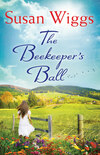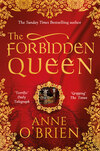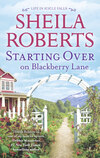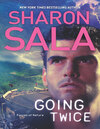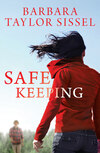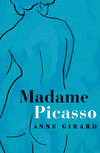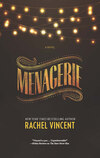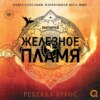Buch lesen: «The Beekeeper's Ball»
#1 New York Times bestselling author Susan Wiggs returns to sun-drenched Bella Vista, where the land’s bounty yields a rich harvest…and family secrets that have long been buried.
Isabel Johansen, a celebrated chef who grew up in the sleepy Sonoma town of Archangel, is transforming her childhood home into a destination cooking school—a unique place for other dreamers to come and learn the culinary arts. Bella Vista’s rambling mission-style hacienda, with its working apple orchards, bountiful gardens and beehives, is the idyllic venue for Isabel’s project…and the perfect place for her to forget the past.
But Isabel’s carefully ordered plans begin to go awry when swaggering, war-torn journalist Cormac O’Neill arrives to dig up old history. He’s always been better at exposing the lives of others than showing his own closely guarded heart, but the pleasures of small-town life and the searing sensuality of Isabel’s kitchen coax him into revealing a few truths of his own.
The dreamy sweetness of summer is the perfect time of year for a grand family wedding and the enchanting Beekeeper’s Ball, bringing emotions to a head in a story where the past and present collide to create an unexpected new future.
From “one of the best observers of stories of the heart” (Salem Statesman-Journal), The Beekeeper’s Ball is an exquisite and richly imagined novel of the secrets that keep us from finding our way, the ties binding us to family and home, and the indelible imprint love can make on the human heart.
The Beekeeper’s Ball
Susan Wiggs

For two beautiful ladies named Clara Louise—my mother and my granddaughter.
Contents
Cover
Title Page
Part One
Bee Sting Cake
Chapter One
Chapter Two
Chapter Three
Chapter Four
Chapter Five
Part Two
Summer Fruit with Honey Dressing
Chapter Six
Chapter Seven
Part Three
Honey Lavender Lemonade
Chapter Eight
Chapter Nine
Part Four
Piernik
Chapter Ten
Chapter Eleven
Chapter Twelve
Part Five
Honey Butter Fried Chicken
Chapter Thirteen
Chapter Fourteen
Part Six
Hummingbird Cake
Chapter Fifteen
Chapter Sixteen
Part Seven
Vincotto
Chapter Seventeen
Part Eight
The Bella Vista Signature Cocktail
Chapter Eighteen
Chapter Nineteen
Chapter Twenty
Chapter Twenty-One
Chapter Twenty-Two
Chapter Twenty-Three
Chapter Twenty-Four
Chapter Twenty-Five
Epilogue
Acknowledgments
Extract
Copyright
 PART ONE
PART ONE
A honeybee that is engaged in foraging for nectar will rarely sting, except when startled or stepped on. If a bee senses a threat or is alerted by attack pheromones, it will aggressively seek out and sting. The worker bee’s stinger is barbed, and when it lodges in the victim’s skin, it tears loose from the bee’s abdomen, causing its death within moments.
However, the queen’s stinger is not barbed.
The queen can sting repeatedly without dying.
 Bee Sting Cake
Bee Sting Cake
The traditional Bienenstich (Bee Sting Cake) is a complicated production of brioche dough and pastry cream, topped with a crunchy caramel made of almonds, honey and butter. This simplified version is every bit as delicious, particularly with your morning coffee.
DOUGH
2¼ cups flour
4 tablespoons butter
2 tablespoons honey
1½ teaspoons instant yeast
¾ teaspoon salt
2 eggs
¼ cup warm water or milk
Combine all of the dough ingredients in a mixing bowl and stir to create a sticky, elastic ball. Transfer the dough to a lightly oiled board and knead for 5 to 7 minutes until smooth. If your mixer has a dough hook, use that for 4 to 7 minutes at medium speed. Place the dough in a bowl oiled with melted butter, turn to grease all sides, cover the bowl with a damp tea towel or plastic wrap and let it rise for about an hour, until it looks soft and puffy.
Transfer the dough to a lightly oiled board, fold it over (you might hear a sigh of escaping gas), then roll into a ball. Place the dough in a buttered 10-inch springform pan. You can also use a 13 by 9-inch cake pan. Don’t worry if the dough shrinks away from the edge of the pan. Allow it to rest so the gluten will relax, making the dough easier to work with. After about 30 minutes, gently stretch and pat the dough out to the edges of the pan.
While the dough is resting, make the topping.
HONEY-ALMOND-CARAMEL TOPPING
6 tablespoons butter
1/3 cup sugar
3 tablespoons honey
2 tablespoons heavy cream
1½ cups sliced almonds
a pinch of salt
Melt the butter in a pan over medium heat. Add the sugar, honey and cream. Bring the mixture to a boil, and cook for 3 to 5 minutes to achieve a golden syrup. Stir in the almonds, let the mixture cool slightly, then spread gently over the cake dough.
Bake the cake in a 350 degree oven for about 25 minutes, until the almond crust has a deep golden color and the cake tests done with a toothpick. Set on a rack to cool completely.
While the cake is cooling, prepare the pastry cream.
PASTRY CREAM
1 cup minus 2 tablespoons heavy cream,
whipped to soft peaks
2 cups vanilla custard or vanilla pudding.
Use homemade, store-bought, or pudding from a mix,
depending on your level of skill and commitment.
1 tablespoon honey
1 tablespoon Bärenjäger or other honey liqueur
Serve the cake in wedges or squares, with a side of pastry cream and a dram of Medovina, coffee or tea. Medovina is mead, a sweet wine made from honey. It’s the oldest known alcoholic beverage.
[Source: Adapted from a traditional recipe]
Chapter One
The first rule of beekeeping, and the one Isabel swore she would never break, was to remain calm. As she regarded the massive swarm of honeybees clinging to a Ligustrum branch, she feared she might go back on her word.
She was new to beekeeping, but that was no excuse. She thought she was ready to capture her first swarm. She’d read all the beekeeping books in the Archangel town library. She’d watched a dozen online videos. But none of the books and videos had mentioned that the humming of ten thousand bees would be the creepiest sound she’d ever heard. It reminded her of the flying monkey music in The Wizard of Oz.
“Don’t think about flying monkeys,” she muttered under her breath. And that, of course, guaranteed she would think of nothing else.
It took every fiber of power and control in her body to keep from fleeing to the nearest irrigation ditch, screaming at the top of her lungs.
The morning had started out with such promise. She’d leaped out of bed at daybreak to greet yet another perfect Sonoma day. A few subtle threads of coastal mist slipped through the inland valleys and highlands, softening the green and gold hills like a bridal veil. Isabel had hurriedly donned shorts and a T-shirt, then taken Charlie for his morning walk past the apple and walnut trees, inhaling the air scented with lavender and sun-warmed grass. Paradise on earth.
Lately, she’d been waking up early every day, too excited to sleep. She was working on the biggest project she’d ever dared to undertake—transforming her family home into a destination cooking school. The work was nearing completion, and if everything went according to schedule, she would welcome the first guests of the Bella Vista Cooking School at harvest time.
The big rambling mission-style hacienda, with its working apple orchard and kitchen gardens, was the perfect venue for the project. The place had long been too much for just her and her grandfather, and Isabel’s dreams had always been too big for her budget. She was passionate about cooking and in love with the idea of creating a place for other dreamers to come and learn the culinary arts. At long last, she’d found a way to grow into the house that had always felt too large.
Isabel was determined to revive the house in every possible way, filling it with the vibrant energy of the living. These days, she felt grateful that she finally had the resources to restore the place to its former glory.
That meant opening the hacienda back up to the world. She wanted it to be more than just the place where she and her elderly grandfather spent their days. She’d been a hermit for far too long. This summer would bring a wedding filled with well-wishers. In the autumn, she would host guests of the cooking school.
Her head full of plans for the day, she’d gone to check the bees with Charlie, her rangy German shepherd mutt. When she’d reached the hives, located on a slope by a rutted track at the end of the main orchard, she’d heard the flying monkeys and realized what was happening—a swarm.
It was a natural occurrence. Like a dowager making way for her successor, the old queen left the hive in search of new digs, taking along more than half the workers. It was rare for a swarm to occur so early in the day, but the morning sun was already intense. Scout bees were out searching for the ideal spot for a new hive while the rest clung en masse to the branch and waited. Isabel had to capture the swarm and get them into an empty hive before the scouts returned and led the whole mass of them away, to parts unknown.
She had quickly sent a text message to Jamie Westfall, a local bee expert. Only last week, he had left a flyer in her mailbox—Will trade beekeeping services for honey harvest. She’d never met him, but kept his number in her phone contacts, just in case. Unfortunately, a swarm in this intermediate stage was ephemeral, and if the guy didn’t get here quickly, Isabel would be on her own. She’d thrown on her jumpsuit, hat and veil, grabbed a pair of loppers and a cardboard box with a lid, and approached the hanging swarm.
This should be simple, she thought. Except that the thing draped from the bush looked like a horrible, reddish, living beard. The humming sound filled her head and then flowed through her like the blood in her veins. She kept reminding herself that there was nothing to fear despite the fearsome appearance and furious sound of the swarm. They were looking for a home, that was all. Anyone in the world could understand that need. And if there was anything Isabel craved, it was to feel at home in the world.
“Okay, then,” she murmured, her gaze never leaving the dense cluster of honeybees, her heart pounding. Capturing a swarm was supposed to be exciting work. It was the ideal way to fill more hives, and it prevented the bees from nesting in places where they’d be a nuisance, like in Grandfather’s prize apple trees.
The bees were docile at this stage of swarming. They weren’t defensive because they were engorged with honey and had no home to defend.
Charlie reclined laconically in the high grass at the side of the hill, sunning himself.
“I’ve got this,” she said. “It’s the perfect swarm. Ha-ha, get it, Charlie?” She looked over at the skinny dog. “The perfect swarm. I crack myself up.”
Isabel didn’t feel strange, talking to a dog. She’d always done it, an only child growing up at Bella Vista, secluded by the surrounding orchards and vineyards and overprotected by doting grandparents. As a child, she had learned to be happy in her own company. As an adult, she guarded herself, because that was what life had taught her to do.
“Here goes, Charlie,” she said. “I’m going in. No loud noises, no sudden movements.”
She set her cardboard box on the ground under the branch, which was sagging now under the weight of the bees. Yikes, this was a big swarm. The sun beat down on her back, reminding her that time was running out.
Her hands trembled as she scissored the loppers. “Now,” she said, steeling herself. “I’d better not wait any longer.” She was tired of missed chances. It was time to seize the moment. Heart thumping, she opened the jaws of the loppers and chopped off the branch. The swarm landed in the waiting box—most of it, anyway.
The humming intensified, and individual bees broke away from the cluster. It took all her control not to flee. She was just inches from breaking the unbreakable rule by freaking out. So what if the swarm disappeared? It was hardly a matter of life or death.
But it was a matter of pride and will. She wanted to keep bees. Bella Vista had always been a working farm, its orchards and gardens sustaining the Johansen family since the end of World War II.
“All right, guys,” she said through gritted teeth. “Here we go.” She bent down and gently adjusted the branch so it would fit in the box. The bees that dropped free of the box crawled back again, joining the cluster. They would stay with the queen. It was the only way to survive.
Shaking from head to toe, Isabel lifted the box. It was heavy. Heavier than she had imagined. And the bees seemed agitated. They were moving faster, or maybe that was just her imagination. She wondered if that meant the scouts were returning.
A fiery pinching sensation on her shoulder nearly made her lose control. “Ow,” she said, “ow, ow, ow. You’re supposed to be docile. What’s wrong with you?” She had probably trapped the poor thing under her jumpsuit. To herself, she added, “Slow and careful. I’m supposed to be good at being slow and careful. Too good, if you ask Tess.”
Tess was by far the more impulsive sister. Sometimes she got exasperated by Isabel’s deliberation and caution.
The crucial moment was upon her. The next task was to get the swarm into the waiting hive.
Just then, Charlie gave a woof, stood up and trotted toward the road. Isabel heard the sound of a motor, its pitch different from the humming of the bees. An orchard worker?
She turned as a banana-yellow Jeep with a roll bar and its top down crested the hill, jolting over the rutted track and spitting gravel out the sides of the tires. A flurry of bees erupted from the box. Several landed ominously on the veil covering her face.
Slow down, she wanted to yell. You’re disturbing them.
The Jeep scrabbled to a halt in a cloud of dust, and a long-bodied stranger jumped out, levering himself with the roll bar. He had long hair and big shoulders, and he was wearing army-green cargo pants, a black T-shirt and aviator shades. There was a hinged brace on his knee, and he walked with a pronounced limp.
Jamie Westfall? Isabel wondered. She wouldn’t mind a little help at the moment.
“This the Johansen place?” asked the deep-voiced stranger.
Charlie made a chuffing sound and sat back in the grass.
“Oh, good, you got my text,” she said, keeping her eyes on the heavy, moving cluster in the box. “Great timing. You’re just in time to give me a hand.”
“What, are you high?” he demanded, peering suspiciously as though trying to see her through the veil. “That’s a swarm of frickin’ bees.”
“Yes, so if you don’t mind—”
“Shit, I got stung.” He slapped at the side of his neck. “What the hell—? Christ, there’s a dozen of the little f— Jesus Christ.” In the next few moments, he swore some more as he swatted violently at a few stragglers. He swore a lot. He used swearwords to modify his swear words. His swatting motions agitated the bees further. Isabel felt another fiery pinch, this one on her ankle, where the fabric of her suit ended in a cuff.
“Be still. You’re making them defensive.” Some beekeeper, she thought.
“Oh, you think? Lady, I’m out of here. I am—”
“I thought you came to help.” The humming crescendoed, and the swarm in the box moved faster, undulating like a living storm cloud. “Oh, no....” She set down the box and waved her hand at a flurry of bees. The scouts had returned. She felt another sting—her wrist this time—and set the box on the ground.
“Shit, look out!” The strange man grabbed her and threw her to the ground, covering her with his body. Charlie gave a sharp bark of warning.
Panic knifed through Isabel, and the fear had nothing to do with bees. It felt like a cold blade of steel, and suddenly she was lost, hurled back to the past somewhere, to a dark place she never thought she’d escape. “No,” she said in a harsh whisper. She bucked, arching her back like a bow, bringing up one knee and connecting with...something.
“Oof, holy shit, what the hell’s the matter with you?” The guy rolled to one side, drawing his knees up to his chest and holding his crotch. The shades flew from his face as a groan slipped from him.
Isabel crab walked away, not taking her eyes off him. He was big, he smelled of sweat and road dust, and his eyes reflected a fury of pain. But he hadn’t hurt her.
She was as startled as he by her overreaction. Easy, she told herself. Take it easy. Her pulse slowed down by degrees, dulled by mortification. Then she tore her gaze from the stranger in time to see the swarm lift up en masse, a thick, spreading veil of heavy silk, the entire colony sailing off into the wilderness. The dark cloud of insects grew smaller and smaller, drifting away like an untethered balloon.
“You’re too late. They’ve gone,” she said, rubbing her shoulder. Glowering, she stood up, kicking the cardboard box in defeat. A few dead bees tumbled from the now empty branch.
“You can thank me later,” the guy said. He was sitting now, too, regarding her with narrowed eyes.
“Thank you?” she demanded, incredulous.
“You’re welcome?” he returned.
“What kind of beekeeper are you?”
“Um, do I look like a beekeeper? You’re the one who looks like a beekeeper, unless that headgear is some new style of burka.”
She peeled off the hat and dropped it on the ground. Her hair was plastered to her head and neck by the sweat of her fruitless hard work. “You’re not Jamie Westfall?”
“I don’t know who the hell that is. Like I said, I came looking for the Johansen place.” He regarded her with probing eyes. She couldn’t help but notice the color, deep green, like leaves in the shade. He was ridiculously good-looking, even with his face pockmarked by beestings.
“Oh, my gosh,” she said, “you must be one of the workmen.” The tile guy was on the schedule today to finish the majolica tile in the teaching kitchen.
“If that’s how you treat a worker, remind me not to get on your bad side. But no, let’s start over.” With a groan of discomfort, he got up. “I’m Cormac O’Neill,” he said. “I’d shake hands, but you’re scary.”
The name meant nothing to her. O’Neill was not on the list of contractors she had been working with over the past year.
“And you’re here because...?”
“Because, oh, Christ...I think I’m dying.” He slapped at his beefy bare arms, his face and neck.
“What? Come on, I didn’t kick you that hard.” She turned just in time to see him hit the ground like a dropped sack of potatoes. “Really?” she asked him. “Really?”
“I got stung.”
“I can see that.” In addition to the bites on his face, welts had appeared all over his neck and arms and hands. “I’m sorry. But they’re honeybees,” she said. “It’s not as if their stings are lethal.”
“Only to people who are highly allergic,” he said, trying to sit up and speaking as though his tongue was suddenly thick. A whistling sound came from his throat.
She knelt down beside him. “You’re allergic? Highly allergic?”
“Anaphylaxis,” he said, yanking at the neckline of his T-shirt.
“If you’re so allergic, why did you come running?”
“You said I was just in time. You said you needed a hand.” His throat was bulging, his eyes glazing over. He looked as if he was just inches from dying.
I shouldn’t be surprised, thought Isabel. I’ve never had much luck with men.
